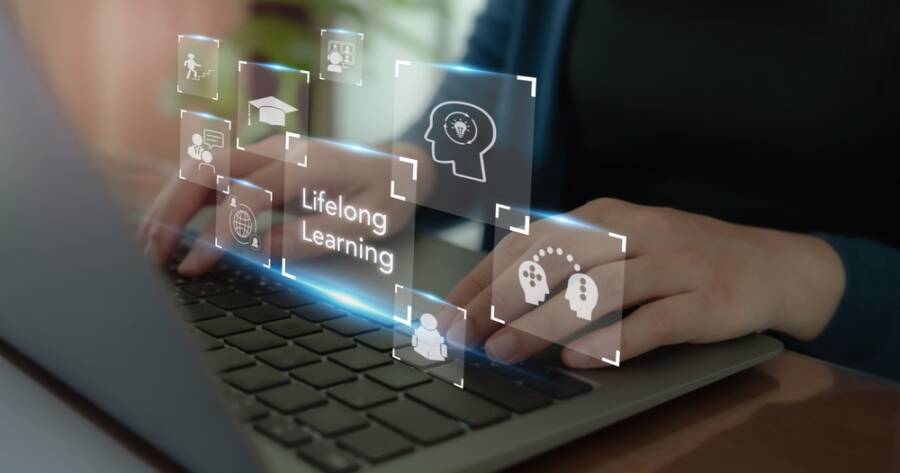In today’s fast-paced world, change is constant—and nowhere is that more evident than in the workplace. With emerging technologies, shifting job markets, and evolving skill demands, what worked five years ago may already be outdated. To stay relevant and competitive, professionals can no longer rely solely on their formal education or past experience. Instead, they must embrace lifelong learning as a core part of their career journey.
Why Lifelong Learning Matters
The half-life of skills—the time it takes for a skill to become half as valuable—has shortened dramatically in recent years. Thanks to automation, AI, and digital transformation, many jobs now require new tools, platforms, or ways of thinking. Professionals who remain static risk falling behind, while those who stay informed and adaptable become more valuable to employers and clients alike.
Beyond job security, lifelong learning fuels personal fulfillment. It keeps your mind active, expands your perspective, and opens doors to new opportunities. People who learn continuously tend to be more confident, innovative, and resilient—qualities that are crucial in today’s unpredictable economy.
Embrace a Growth Mindset
The foundation of lifelong learning is a growth mindset—the belief that your abilities and intelligence can be developed through effort, feedback, and perseverance. This perspective transforms challenges into opportunities and mistakes into learning moments.
Rather than fearing what you don’t know, see it as a chance to grow. Ask questions, seek feedback, and take on projects that stretch your capabilities. Lifelong learners aren’t afraid to be beginners—they’re excited by it.
Set Learning Goals
Like any personal or professional development effort, learning is most effective when it’s intentional. Set clear goals for what you want to learn and why. Are you looking to stay current in your field? Pivot into a new role? Strengthen your leadership abilities?
Define both short-term and long-term goals, such as completing an online course, attending industry events, reading a certain number of books, or gaining a certification. Clear goals give your learning journey structure and help you measure progress over time.
Use Diverse Learning Resources
Thanks to the internet, high-quality learning is more accessible than ever. Whether you prefer podcasts, webinars, online courses, books, or hands-on experience, there’s a learning format that fits your schedule and style.
Platforms like Coursera, LinkedIn Learning, edX, and Skillshare offer courses in everything from coding to communication. Podcasts and newsletters help you stay current on industry trends. Mentorship and networking provide insight you can’t always get from a textbook.
The key is to learn consistently, even if it’s just 15 minutes a day.
Apply What You Learn
Learning doesn’t end with knowledge—it becomes powerful when you apply it in real-life situations. Look for ways to integrate new skills into your current job, side projects, or volunteer work. Share insights with your team, lead a workshop, or write a blog post about what you’ve learned.
Application reinforces retention and helps you build a portfolio of experience, not just theory. It also shows employers that you’re proactive and capable of turning learning into results.
Stay Curious and Open to Change
The most successful lifelong learners are those who stay curious. Ask how things work. Explore topics outside your field. Stay open to changing your mind as you gather new information.
Being curious keeps you ahead of the curve and helps you adapt more easily when change inevitably comes. It’s not about knowing everything—it’s about being willing to learn anything.
Learn to Stay Ahead
In a world where skills evolve quickly and industries shift overnight, lifelong learning is your greatest career asset. By nurturing curiosity, setting goals, and taking action, you can remain relevant, capable, and confident—no matter how the professional landscape changes.
Your learning journey doesn’t end with a diploma. In fact, that’s just the beginning. Keep learning, stay flexible, and you’ll always be ready for what’s next.

